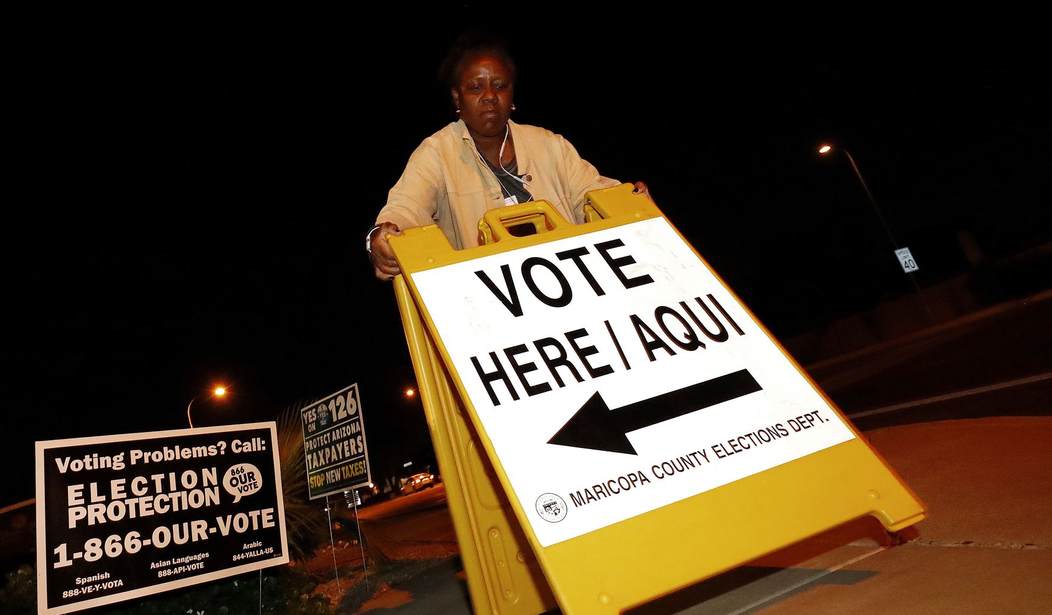Editor's note: This column was authored by Sean Parnell.
A quiet, well funded effort is underway to change the way voters in New York and other states choose the president. The plan would upset the balance of power between small and large states and between big population centers and everybody else. Giant metros like New York City would become the focus of campaigns, while other voters would lose power.
The National Popular Vote interstate compact (NPV) would fundamentally change presidential elections, but does not follow the constitutional process for making such a monumental alteration. Already, 15 states and DC have passed NPV legislation. Together, they control 196 electoral votes--the compact takes effect if joined by states that control at least 270 electoral votes. But by avoiding the amendment process, this anti–Electoral College compact threatens to create major legal issues that would lead to chaos.
The problem with using an interstate compact is that once drafted, it cannot be easily changed. Each state must adopt the exact same language and implement it in the same way. If a compact is unclear or fails to anticipate significant problems, it will fail. Such is the case with NPV, which conflicts with other state laws (and some state constitutions) and provides no mechanisms for resolving disputes or dealing with conflicts.
The NPV proposal is deceptively simple: change state law so that member states choose presidential electors based on the nationwide popular vote. Except there is no nationwide popular vote, because there is no nationwide election. Each state has its own constitutional, statutory, and regulatory provisions governing elections—including the presidential election.
Because NPV is not a constitutional change, but only a state law, it cannot nationalize anything. It relies on partisan officials in member and non-member states alike to trust and cooperate with one another, even in close or contested elections. State officials would also need to change other laws and practices, or else rely on state and federal judges to overlook legal inconsistencies.
Recommended
One example: the compact requires state election officials to “determine the number of votes for each presidential slate in each State of the United States and in the District of Columbia.” But states do not hold elections for the “presidential slate” (a party’s nominees for president and vice president) but for the “elector slate” (a party’s nominees for presidential elector). The NPV compact actually defines these terms correctly but uses them incorrectly in its key provision.
The compact does require that “[e]ach member state shall conduct a statewide popular election for President and Vice President of the United States.” An especially suspicious person might wonder if NPV is drafted in a way that could allow member states to disregard the popular votes of non-member states altogether, since member states could rightly argue that votes in other states are only cast for presidential electors. On the other hand, NPV is here in conflict with itself, since voters in NPV states would not really be casting votes for president but in a quasi-national election for their state’s presidential electors.
As to conflicts among states, the compact simply says that member states “shall treat as conclusive an official statement containing the number of popular votes in a state for each presidential slate….” In other words, even if state officials knew or suspected that a state’s reported vote total was incorrect, the compact offers no recourse. There is also no enforcement mechanism if one state refuses to accept another state’s result, and no official body that can mediate disputes between members.
NPV assumes that every state, whether or not it is a member of the compact, will count and report their election results in the same way, but that is not the case. The most obvious example is ranked choice voting, used by two states and proposed in others, which could cause hundreds of thousands or even millions of votes to be erased or added based on a few states’ experiments with this complex election process.
If NPV took effect, courts might allow officials or voters in one state to sue another state over its election practices--something that is not allowed today. Could a California judge reject votes from states with voter ID laws? Would a Texas judge reject votes from states that allow ballot harvesting? Could Maryland sue Alaska for erasing a hundred thousand votes for the Democratic candidate under its new voting laws? Could fellow compact members sue each other if they choose to use different vote totals from the same state?
NPV dramatically expands the types of lawsuits that might be possible to challenge an election. These are in addition to strategies non-compact states might use to interfere with NPV. The South Dakota Legislature last year passed a resolution condemning the compact, and other states are considering the same action this year. If NPV was about to take effect, these states might change their own laws in an attempt to protect the Electoral College system. Again, NPV is simply silent on how to resolve such disputes.
The Electoral College is part of the original U.S. Constitution, modified only once--in 1804--by the Twelfth Amendment. That was the right way to alter the system then, and it remains the only appropriate and safe way to change the system today. While we believe the Electoral College is well worth preserving, it is apparent that NPV is particularly dangerous and illegitimate.
Trent England is an attorney and the executive director of Save Our States, where Sean Parnell is senior legislative director.

























Join the conversation as a VIP Member